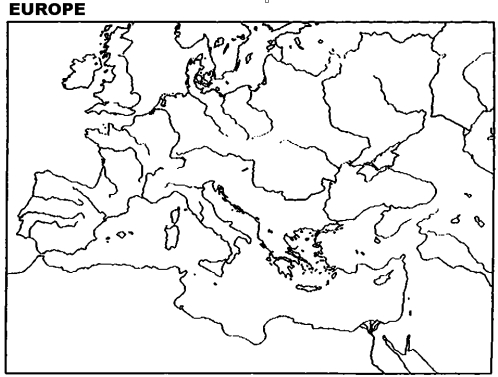Exam 14: The Reformation: the Shattering of Christian Unity
Instructions: Please define the following key terms.Show Who? What? Where? When? Why Important?
-quietism
Quietism is a philosophical or religious attitude that emphasizes a state of inner quietude and the passive acceptance of things as they are. It is often associated with the belief that true peace and happiness can be achieved by withdrawing from worldly affairs and suppressing one's desires and ambitions.
Who? Quietism has been associated with various religious and philosophical figures throughout history, including Christian mystics like Meister Eckhart and Miguel de Molinos, as well as in Eastern traditions such as Taoism and certain schools of Buddhism.
What? Quietism is the practice or philosophy of seeking inner tranquility and spiritual peace through detachment from external concerns and the relinquishment of personal desires. It often involves a deep trust in a higher power or the natural order of things, allowing events to unfold without interference.
Where? Quietism has appeared in various forms across different cultures and religious traditions around the world. It is not confined to any one geographic location.
When? The term "quietism" became particularly prominent in the 17th century with the work of Spanish priest Miguel de Molinos, whose teachings were influential in the Christian mysticism of the period. However, the concept of inner quietude and passive acceptance can be traced back to ancient philosophical and religious traditions.
Why Important? Quietism is important because it represents a significant perspective on the human quest for peace and fulfillment. It challenges the active, interventionist approach to life that is often emphasized in Western cultures, offering an alternative path that values stillness and the acceptance of things as they are. Quietism has influenced various spiritual practices and has been a subject of debate within religious and philosophical circles, particularly regarding its implications for ethics and engagement with the world.
The Jesuits used all the following in their campaign against Protestantism except
B
A historian's explanation of the failure of the Reformation to take hold in Italy and Spain would be
In Catholic practice at the beginning of the sixteenth century, indulgences referred to
The Reformation ran counter to the development of modernity by
Instructions: Please define the following key terms.Show Who? What? Where? When? Why Important?
-inner light
Instructions: Please define the following key terms.Show Who? What? Where? When? Why Important?
-predestination
The original occupation of Ignatius Loyola, founder of the Jesuit order, was
As Protestantism developed, a Radical Reformation appeared which
According to the author, the main reason why the Church did not immediately condemn Luther was
Instructions: Please use this outline map of Europe to answer the question(s).  -Locate where the following occurred: the posting of the Ninety-five Theses at Wittenberg; the meeting of Luther and Charles V at Worms; the center of international Protestantism, Geneva; the Anabaptist stronghold, Muenster; the church council at Trent.
-Locate where the following occurred: the posting of the Ninety-five Theses at Wittenberg; the meeting of Luther and Charles V at Worms; the center of international Protestantism, Geneva; the Anabaptist stronghold, Muenster; the church council at Trent.
Filters
- Essay(0)
- Multiple Choice(0)
- Short Answer(0)
- True False(0)
- Matching(0)